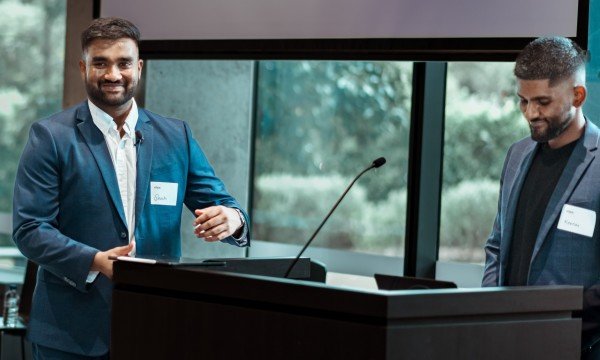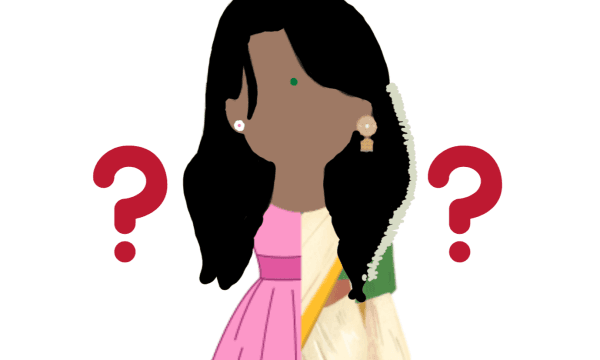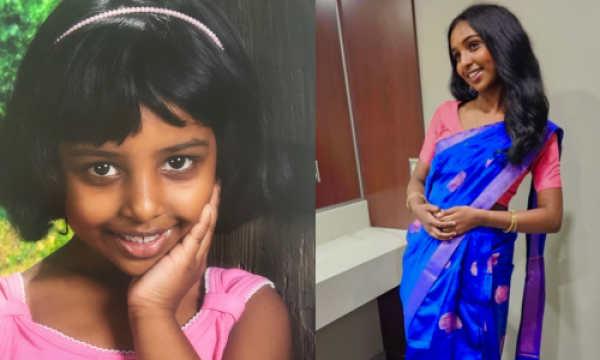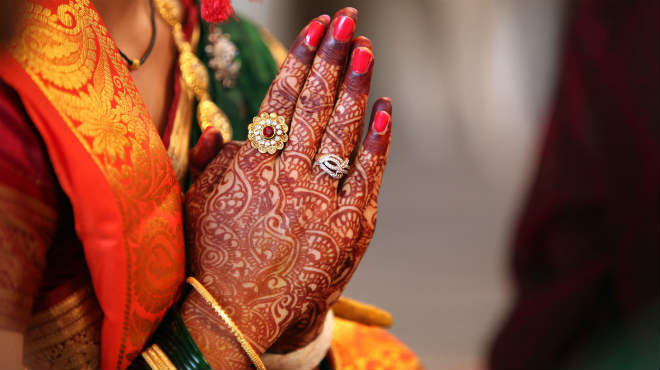
In 2018, the Home Office reported that the Forced Marriage Unit (FMU) advised and supported a potential 1,507 cases of forced marriage. (Forced Marriage Unit Statistics 2018, Home Office, 2018).
Between 2011 and 2017, the FMU provided support in an average of 1,338 cases per year. The World Health Organisation (WHO) reported that 39,000 child marriages take place every day.
I have an article on child marriages, which you can read at: https://nireshanegotiates.wordpress.com/2020/06/06/child-brides-and-grooms-childhoods-breached-gambled-and-given-away/
What this article focuses on is forced marriages of young adults, who are forced into marriages, often by their parents. Albeit, not all young adults consider introduction to a prospective future partner as a “forced marriage”, yet the flip-side to this conundrum is that forced marriage is very much a reality and often taking place under society’s very realms.
Forced marriages are a concept that is very much a taboo topic yet needs to be openly addressed and discussed. If it were not that serious an issue, the UK government would not urge those in danger of a forced marriage to call 999 if they are in immediate danger of being forced into a marriage.

What is a forced marriage?
A forced marriage in the UK is a criminal offence under the Anti Social Behaviour, Crime and Policing Act 2014. An individual found guilty of pressuring an adult into a forced marriage can face imprisonment of up to 12 months to 7 years, sometimes with a fine.
A forced marriage is a marriage in which one, or both parties entering into the marriage do not consent to the marriage and have been subjected to emotional and/ or physical violence, coercion, threats, etc. The Home Office report that coercion can include emotional force, physical force or the threat of it, and financial pressure (ibid).
A forced marriage is also applicable to those who lack mental capacity and unable to voice their consent due to mental incapacity, learning and physical disabilities; who are forced into a marriage by someone else, on their behalf.
A forced marriage differs from an arranged marriage, in that in an arranged marriage, both parties ideally would have consented to the union, but still have the opportunity to renege from marriage and refuse to marry if they choose to.
The Home Office report that there are “focus” countries which correlate to the risks of forced marriages. A focus country is one which is deemed as high risk for a forced marriage to take place or has already taken place, or where one or both parties to the marriage originate from. The Home Office report that in 2018, the following countries were highlighted as indicative focus countries:
- Pakistan – 687 cases (46%)
- Bangladesh – 133 cases (9%)
- India – 85 cases (6%)
- Afghanistan – 41 cases (3%)
- Somalia – 38 cases (3%)
- Romania – 37 cases (2%).
There are of course more countries where forced marriages bear prominence. It should also be borne in mind that it is not just females who are subjected to forced marriages, but also males. The Home Office highlight that in 2018, 102 cases had no overseas element, with the potential of actual forced marriage taking place entirely within the UK and both males and females were victims (ibid).
NatCen in 2009 found that between 5,000 and 8,000 forced marriages were reported in England, but these stark figures did not include the “hidden figures” who did not come forward and report their suffering.
The Home Office state that “forced marriage is a hidden crime, and figures are unlikely to reflect the full scale of the abuse” (ibid).
Why? Why a forced marriage, I hear you ask?
Good question. Often, adults are forced into marriages due to a range of factors such as preserving wealth, family reputation and status. Other times, perhaps one party has a mental health condition, for which their family try to “cover” up and force their child into leading a life that another child would, thinking marriage is a “quick fix” to solve the issue. It is quite common in South Asian countries that sadly, mental health is stigmatised and not paid heed to. Some parents believe that getting their child married will “solve” any mental health conditions, when in fact this is wholly unfair on the child and their intended spouse. The BBC state a forced marriage can be induced by families “to provide a carer for a disabled family member / reduce the ‘stigma’ of disability”.
Further, such controlling behaviour can prevent a child from having an “unsuitable” relationship with another person, outside their ethnic, cultural, caste or religious group. A forced marriage can also be viewed as a “green card” to residence and citizenship to another country.
BBC state that “many victims are subject to emotional blackmail and physical threats. A number of them may be forced to marry a member of their extended family, for example, a cousin.”
Where a young adult is forced into a forced marriage to an extended family member or any other individual, should the young adult renege, “the victim’s parents may call them [their children] selfish and they are told they are bringing shame on the honour of the family” (ibid).
It therefore comes as no surprise that a young adult can feel immense pressure from their family to proceed with a forced marriage. Some young adults do not have the gusto to fight back or retaliate. For them, they feel that their parents’ pressure is paramount. This is unjust.

Cultural considerations
The BBC (ibid) candidly report that “some young people, especially of South Asian background, are tricked into visiting their family’s country of origin for a holiday, only to find that there are plans to get them married there.” It is of course transparent that forced marriages are also taking place in the UK without the need of an international element.
“They may be isolated, have no access to money, telephones or their passports, and their movement will be restricted. The local British embassy will get involved if the victim – or someone they know – informs them or the UK’s Forced Marriage Unit about their situation.
“Making the contact may involve some risk for the victim hence under-reporting is fairly common.”
The Universal Declaration of Human Rights (UDHR 1948), specifically refers to one’s right to enter a marriage “with free and full consent” (Article 16 (2)). However, some ethnic communities do feel that their cultural practices trump the law.
In Sri Lanka, media notably account that “forced marriages destroy mutual respect and trust“; however many families push their offspring into forced marriages. The Sri Lankan newspaper, Daily Mirror, has a poignant article on forced marriages and that women and and girls cannot be disposable. The article (ibid) tells the tale of a young woman who was pushed into a forced marriage by her mother, to find herself sexually, emotionally and physically abused by her husband who turned out to be an alcoholic. What strikes me the most is that the sad tale of this young woman’s plight is cyclic, with the article reading: “the saddest thing about Lalani’s story is its wider significance for all of us as members of Sri Lankan society, because her experience is not exceptional.”
The tale of Lalani in Sri Lanka is one that is happening to Sri Lankan men and women, in the UK. This can no longer remain a mere oversight and family in the Sri Lankan diaspora in the Western world need to be held accountable for their actions of forcing adults – and the impact it bears on the intended spouse and their family – into marriages. This qualm is applicable to all families proceeding with forced marriages, irrespective of ethnicity and location in the world.
Cultural pressures from extended family members should also be mentioned at this point. Some families endure extensive pressure from family, friends and even their cultural community at large, to have their children married by a certain age, to a certain family, etc. Such pressure is then forced upon a child, by their parents, to get married – purely to uphold the status quo and honour in the community. This is wholly despicable and cultural considerations should never trump the law.
The UN’s instrument for protecting and advancing women’s rights globally, The Convention on the Elimination of all forms of Discrimination Against Women (CEDAW), states:
“Traditional attitudes by which women are regarded as subordinate to men or as having stereotyped roles perpetuate widespread practices involving violence or coercion, such as family violence and abuse, forced marriage, dowry deaths, acid attacks and female circumcision. Such prejudices and practices may justify gender-based violence as a form of protection or control of women. The effect of such violence on the physical and mental integrity of women is to deprive them the equal enjoyment, exercise and knowledge of human rights and fundamental freedoms.”
Despite many south Asian countries being treaty member states to such instruments, cultural practices appear to take prevalence. CEDAW’s General Recommendation on Equality in Marriage (No. 21) considers “early and forced marriages a “harmful” practice that must be eliminated, even if it is approved in local cultures and customs”. Albeit, countries such as Sri Lanka have signed such treaties and therefore bound by international human rights law; yet if South Asian communities living abroad (in developed countries) are not conforming to international human rights dictations – what hope do local communities in developing countries have?
It is sad that many who end up in a forced marriage live a life of sorrow and despair unable to escape. Domestic abuse could be an everyday part of life, which is wholly wrong. The stigma of divorce is very much a taboo in South Asian communities, leading to many victims of forced marriages suffering in silence.
Forced marriage protection orders
To tackle the uprising cases of forced marriages in the UK, the UK government introduced forced marriage protection orders. If you are a victim, being threatened into a forced marriage, or know someone who is a victim, you can apply for such a protection order. The purpose of this implementation is to stop someone taking the victim out of the UK for the purpose of marriage, and to halt the marriage from proceeding in its entirety (abroad or in the UK). The application is free of charge.
If a victim is at immediate risk and does not want the perpetrator to be aware that such an order has been applied for, the victim has the opportunity to apply for an emergency order.
The government state “each order is unique, and is designed to protect you according to your individual circumstances. For example, the court may order someone to hand over your passport or reveal where you are. In an emergency, an order can be made to protect you immediately.”
There is a poignant handbook published to assist survivors of forced marriages to rebuild their lives and identities. Changing an identity can often prove a useful tool to escape reigns of a forced marriage to prevent families from tracing and conducting an honour killing.
A victim of a forced marriage should never be considered an outcast: they are a survivor; brave in their decision to leave a forced marriage.
In 2018, 322 applications for forced marriages protection orders were applied for and 324 orders were made (Family Court Statistics Quarterly, England and Wales, Annual 2018 including October to December 2018, Ministry of Justice).

Whilst the introduction of such protection orders is a positive measure, it is heartbreaking to note that many victims do not seek help or justice out of sheer fear from their family pressures. This is an issue that must be addressed in local communities. Education on the criminal nature of forced marriages is key.
My two cents…
There are so many cases of forced marriages emerging in the UK and it took a ten year campaign by women’s rights groups to have specific legislation enacted in the UK to make forced marriages a criminal offence.
Parents who push their child into a forced marriage for whatever (feeble) reason, for example, to “cover up” a disability to maintain status quo (instead of seeking the relevant medical assistance for their child); do not stop to consider the qualms they are inflicting upon the intended spouse too. To me, forcing a child to get married is a sin for the child and their intended spouse in all circumstances.
There is suggestion that during the lockdown of the coronavirus epidemic, forced marriages could be on the rise. The FMU raised concerns that parents could be planning to take their children abroad, against their will, to conduct forced marriages, as the laws on self – isolating for 14 days in the UK are now redundant (ibid). Organisations, charities and outreach groups are working with UK Border Force to learn the tell – tale signs of families travelling abroad for a forced marriage.
Closer to home, more communities need educating that forced marriages are dated, wholly unjust and a violation of a young adult’s human rights.
Between 2008 and 2019, 2,452 Forced Marriage Protection Orders were granted in UK courts in a bid to rescue victims: but cases remain significantly unreported. More needs to be done to abolish forced marriage and restore youth’s faith in matrimonial bliss.
For those forced into marriages, bliss is nothing short of hell and a young adult should not be forced into a lifelong commitment that they did not seek. A child should have the freedom to pick all aspects of their future, including who they intend to marry.
Forced marriages happen to males and females alike and for those and their intended spouses who are suffering within, have escaped or seeking legal justice – I stand in solidarity with you.
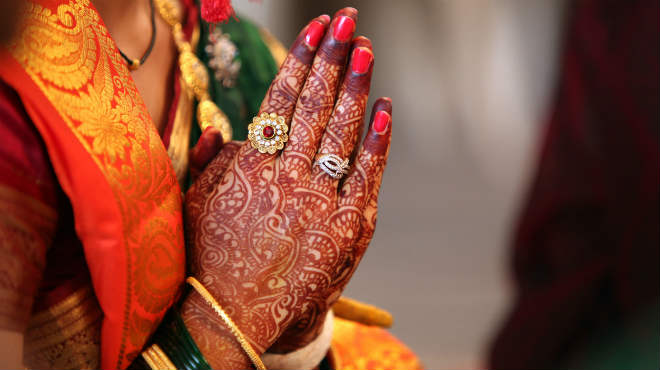
This article is written with information correct as at 16th July 2020.
Looking to create your love story? Join the other couples who have dated and got married through myTamilDate.com!
"How a Message on myTamilDate.com Led to an Engagement for Lavanya & Vitharan"








